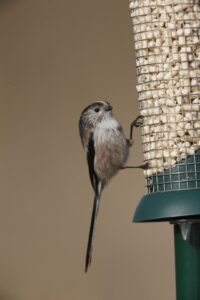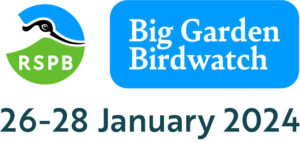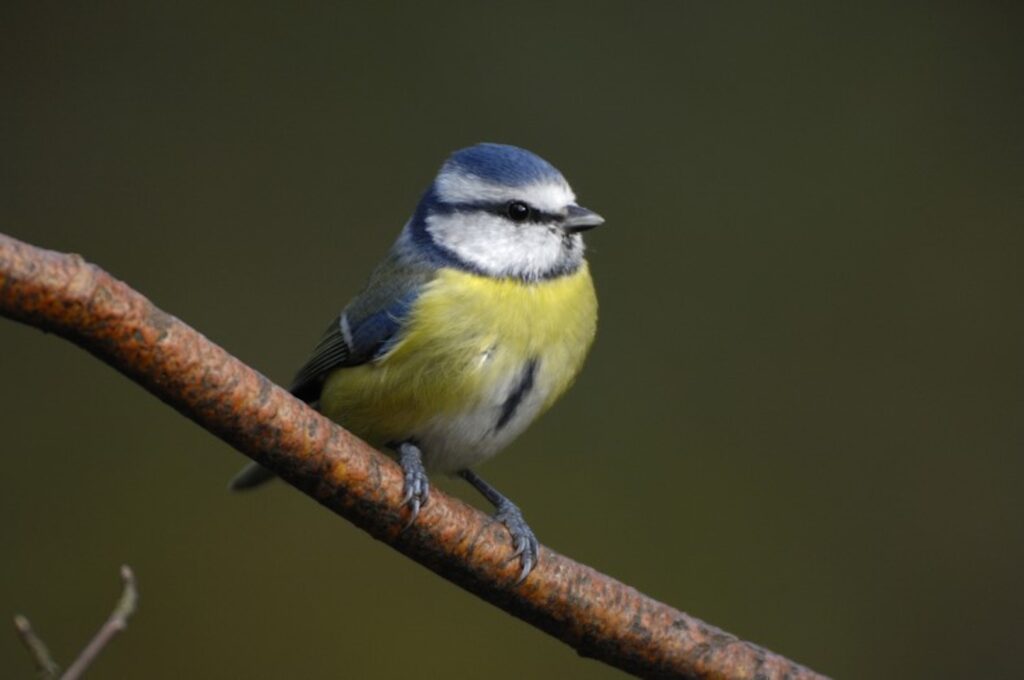Discover the importance of the RSPB’s annual survey and how you can get involved this January.
The RSPB’s Big Garden Birdwatch is the largest garden wildlife survey in the world and takes place every January, this year on 26th, 27th and 28th. Participants spend an hour counting the birds in their garden, balcony, or local park. Over half a million people took part in 2023, counting more than 9 million birds!
This year’s event marks 45 years since the first Big Garden Birdwatch. Starting in 1979, it has become a much-loved annual citizen science event, that gives the RSPB a valuable snapshot of how garden birds are doing in the UK. Over that time, 185 million birds have been counted and nearly 11.5 million hours have been spent watching garden birds.
Beccy Speight, the RSPB’s Chief Executive, said: “By taking part in the Birdwatch you are joining hundreds of thousands of people from across the UK, united in a love of nature, to play an important role in helping us understand how our UK birds are doing. Big Garden Bird-watch demonstrates the power that people have when they come together for nature. Join us for Big Garden Birdwatch 2024 and together let’s take action to help birds and other wildlife thrive for generations to come”.
Why is the survey important?

The Big Garden Birdwatch allows a large vol-ume of data about garden birds to be recorded from across the UK, meaning trends in popula-tions can be identified that might otherwise go unnoticed. House Sparrows, for example, cele-brated their 20th year as the number one bird spotted in UK gardens in 2023. While nearly 1.5 million were recorded, this species has sadly suffered severe declines. In fact, the number spotted in gardens has dropped by nearly 60% since the Birdwatch first began in 1979.
Over its four decades, the Big Garden Bird-watch has highlighted the winners and losers in the garden bird world. The Long-tailed Tit, a much-loved species, rose five positions in the rankings last year, with numbers 39% higher than in 2022. However, Long-tailed Tits are susceptible to harsh weather condi-tions, with the numbers recorded fluctuating since the Birdwatch began. Meanwhile, Greenfinches and Chaffinches have been bad-ly affected by a disease known as Trichomonosis. As a result, the UK Chaffinch population has declined by 37% over the last decade, while Greenfinches have declined by 62% over the same time frame.
Beccy added: “The birds we see in our gar-dens, from our balconies, and in our parks, are a lively, colourful, and endlessly fascinating part of all our lives. They connect us with the vital natural world. By taking part in the Bird-watch, you and hundreds of thousands like you, play an important role in helping us un-derstand how UK birds are doing. With birds and other wildlife now facing so many chal-lenges due to the nature and climate emergen-cy, every count matters”.
How to take part
Sign up to the Big Garden Birdwatch at rspb.org.uk then watch the birds in your gar-den, balcony, or local green space for one hour at some point on the 26th, 27th or 28th January. Only count the birds that land and record the highest number of each species you see at any one time. Then submit your results, and even if you see no birds at all, it’s all val-uable data.
To receive your FREE Big Garden Birdwatch guide, which includes a bird identification chart, top tips for your birdwatch, RSPB shop voucher, plus advice on how to attract wild-life to your garden, text BIRD to 82727 or visit www.rspb.org.uk/Birdwatch


